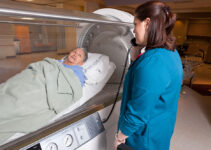What questions should you ask when considering an addiction recovery center? Addiction can be a very consuming disease and finding the right treatment facility can be challenging.
Choosing the right center for your specific needs has a huge impact on your chances to recover successfully.
As you look over drug, alcohol, and mental health addiction treatment center options, consider these 10 questions.
Is the rehab center accredited?

Source: recoveryinmotion.com
Gallus Detox announced its inpatient alcohol detox program recently but how will you know if they’re program is right for you or even legitimate?
The most prestigious accreditation for drug rehab facilities is the Joint Commission on the Accreditation of Healthcare Organizations or TJC. Their strict requirements call for the highest quality of treatment.
Either way, you’ll want to make sure the facility is properly licensed and accredited in some fashion. Do a little research and make sure it’s right for you.
What is the staff-to-patient ratio?
Addiction recovery requires massive support. Most people can’t take this path on their own. Ask the prospective facilities how many staff will be a part of your loved one’s progress and how they will help them on their journey through recovery.
What do other patients say about their experience at the center?
Who better to tell you about the benefits of a specific rehab center than those that already used it?
How successful was their journey? How did they like their care? Did it help them?
Asking someone who used the program how it worked for them can give you some insights. Remember that every individual responds differently. Ask your questions carefully and make sure that if it failed, it may have been a bad program for that patient.
What programs are available?

Source: integrisok.com
Every addiction is different because every person is different. While they may have certain similarities and underlying forces, the treatment plans for addiction need to be catered to everyone. Some individuals can conquer their addiction via meetings and counseling sessions while others need more extensive and even inpatient support. Some facilities offer holistic or alternative treatments. Others include art therapy, meditation, yoga, nutrition, fitness, and acupressure.
How long are the rehab programs?
Drug rehab programs vary greatly when it comes to length. The consensus is that a successful recovery can’t be accomplished with less than 90 days of treatment.
While more successful, 90 days of treatment requires serious commitment and may not be feasible for everyone. Most programs range between 30 and 90 days, sometimes longer.
Find out ahead of time the duration of their program and any aftercare that carries patients through the treatment process.
Are there options for extended care after treatment?

Source: capocanyon.com
To decrease the chances of relapse, it’s important to look for aftercare programs. Addiction recovery is a life-long process and requires continued care, especially early in your program.
Don’t make aftercare or continuing care an afterthought. Get it taken care of immediately.
Find out if the facility you’re considering offers a period of aftercare like group and individual counseling. Many programs offer outpatient care following inpatient programs to ease the transition back into regular daily life.
Programs like aftercare, IOP, and sober living keep patients engaged with their recovery path, provide positive and sober social experiences, and offer support and one-on-one assistance in managing any relapse.
Ask what makes them stand out.
Ask the professionals why you should choose them. They may think of a reason they’re a good match that you didn’t think of.
What makes them stand out from the competition?
Do they offer specialized therapies to make treatment individual? Do they pride themselves on an environment that inspires calm and tranquillity for treatment?
What they decide to highlight about themselves can speak volumes about what they believe in.
How much do the programs cost and what are the payment options?
While recovery itself is priceless, there are ‘luxury’ rehab facilities that cost tens of thousands of dollars which isn’t realistic for everyone.
There are many affordable centers out there, most of which will be accepted by your health insurance to help defray out-of-pocket expenses. Ask ahead of time about the cost and payment plans. Most centers will also offer a free service to verify your insurance benefits and maximize your health coverage to cover your treatment.
Some centers also have reduced payment or sliding scale options to help those in need. Scholarships are available in some locations to make treatment more affordable for those who need it the most.
What type of support do you have for family and friends during recovery as well?

Source: cfhh.ca
The more involved the family is in the process, the more successful the patient will be. It’s important to find a facility that includes family counseling in the recovery process.
If they don’t offer it themselves, see if they have a skilled counselor or support group in the area that they will refer you to.
What about dual diagnosis?
Many patients suffering from substance use disorders have also been diagnosed with accompanying disorders like anxiety, PTSD, and depression and the treatment plans for these individuals are far more complicated.
Integrated treatment of co-occurring disorders is the most effective, but not all programs can create these types of programs. They may not have the facilities or the trained staff necessary to care for the patient properly.
If you or your loved one has received a dual diagnosis, make sure to ask the facility and the staff if they can provide the proper care with integrated treatment.
Takeaway: Recovery centers are unique, so ask questions to make sure you are visiting ones that will help you in your specific situation.
Choosing the best addiction recovery center for your needs can be daunting, but speaking with a few professionals at rehab facilities can help to eliminate your options more quickly. When you’re ready to start your search for the best addiction recovery center, ask these questions to help guide you. Then sit back and allow yourself to contemplate. Trust your instincts; if a particular facility feels right, it very well may be.







